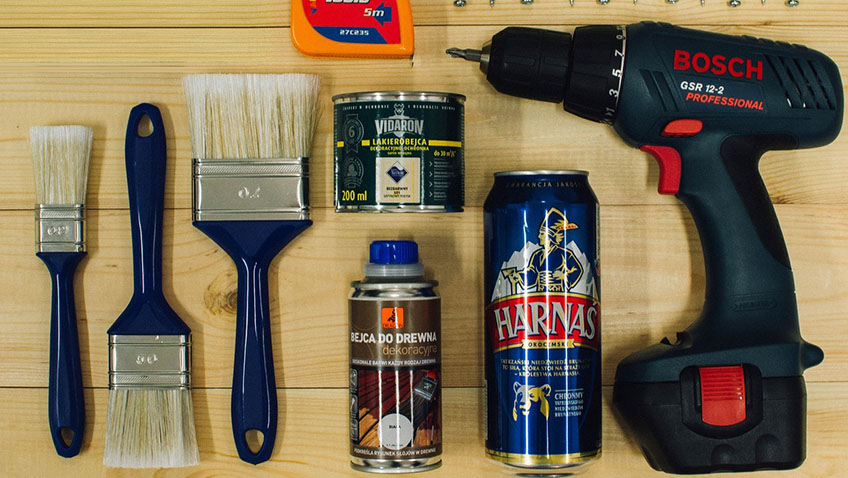There are many reasons to get more excited about DIY home improvements. They can add value to the home, they can be a fun side-hobby to take on and they can improve the luxury, comfort and design of a home. It’s about that time of year to get started on the winter related home improvements before it is too late – but should we be doing home improvements ourselves our hiring a pro?
Figure out your skill set, available time and priority of tasks
First and foremost, planning is key. Make a list of all the home improvement project ideas you have, then put them in chronological order of what needs to be done soonest (winter related ones, probably). When you decide on one, figure out which part of the project you have the skills to do, and which parts you have time for. Then, you can begin to prepare and make some calls if needed.
Make use of glue
Whilst it’s often the big projects that add (or lose) value to a home, the little things are what makes it nicer to live in. Fixing the coffee table leg and getting the dresser table back together are things that we procrastinate on. However, glue is a cure-all. It makes fixing things much easier and saves a lot of money on materials or even hiring professionals. Getting a fast acting strong product can make home improvements extremely pain-free, fast and easy on the wallet.
Make use of YouTube
Those who are less tech savvy may or may not have figured this out yet, but YouTube is essentially the largest catalogue of free tutorials and online courses in the world. Let YouTube facilitate in your home improvements, and if you are hesitant on whether to take on a project or not, a quick search and scroll can give you an idea of the skills that will be required. Many channels may also provide a full documentation of their own project (i.e. a log of time taken, analysis on costs, and so on).
Home improvements where you should hire a pro:
Not all projects should be taken on without the right assessment. Here is a guide to help inform your decision:
Large projects
Unless you’re unemployed, have a lot of time on your hands or are simply bored, large projects that will take you weeks to both learn and complete may be better left to a professional. This is because it may compromise your actual work, or you may get halfway through the project and regret taking it on.
New tools
Many home improvement projects require you to buy new tools and materials. Such equipment should already be owned by a professional, and not reflected in his invoice. It is however going to contribute to your bill when you take on the work yourself. Also, don’t get fooled into the “false economy” propaganda to buy expensive tools – buy a cheap one, if it breaks, you’re clearly actually making use of it so then go and buy a high quality one. This is to avoid paying more in tools than you would have in contractors.
Complex projects
Complicated projects can be both a blessing and a curse. This is an opportunity to learn and discover a new passion or talent. However, if this desire to learn isn’t in your personality, complicated jobs should be objectively assessed and perhaps just be outsourced.
Dangerous projects
This is the most important point of all. Jobs that involve danger, for example electrical work, should be left to a pro if you are not qualified and/or trained in the field. This goes for using potentially dangerous equipment too, such as chainsaws.





